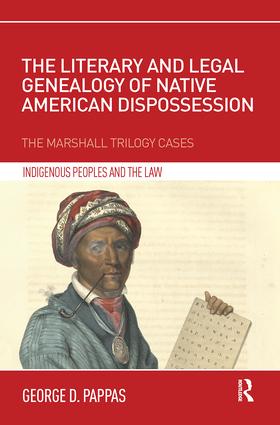This month's AHR forum features work on legal history and indigenous agency. Here are some highlights from AHR 124:1 (1 Feb. 2019):
Introduction excerpt: "The essays in this AHR forum bracket three centuries of experiences that Indigenous peoples have had with colonial legal systems in North America. In seventeenth-century Spanish colonial Mixteca, Oaxaca, in today’s southern Mexico, Ñudzahui communities contended with a system of hierarchically nested judicial and authority structures that blended Indigenous and early modern Spanish legal practices. In a radically different colonial and natural environment thousands of miles to the north and several hundred years later, Yellowknives Dene peoples of Canada’s Northwest Territories found their lives circumscribed by international and national laws that were at odds with treaty rights they had reserved for themselves in the early twentieth century. Despite the disparate times and places of the legal cases analyzed in these two essays, they both demonstrate the centrality of colonial law to Indigenous lives."
Abstract: Recent global legal histories argue that jurisdictional competition between authorities, often at the edges of territories, ordered empires and nations. But we still need more concrete, grounded understandings of how local actors understood and produced jurisdiction, and we need clearer methodologies for recovering those understandings from archives that privilege imperial, often European concepts of law, authority, and territory. A single case from southern Mexico, centered on the 1683 arrest of a native man named Juan Matías at a makeshift court built on a wheat field, provides both. Close attention to this case, supplemented with regional and temporal comparison, offers glimpses of how imperial law on the books animated local understandings of jurisdiction on the ground. In turn, in the very act of translating local events and native practices for a Spanish judge, Juan Matías demonstrates how jurisdiction—in this case “Indian jurisdiction,” a unique plane of native authority within the Spanish Empire—was not merely captured on the page in legal documentation but produced through it by native judges and legal agents.
Abstract: In settler states such as Canada, indigenous peoples’ claims for sovereignty in the late twentieth century became matters of intense public and political debate. Provoked by widespread indigenous rights activism of the 1970s, the Canadian state embarked on a large-scale examination of claims for rights and restitution. By focusing on the 1962 case of a duck hunter who insisted on his treaty right to hunt as he pleased in a Canadian borderlands region that was becoming more tightly woven into the fabric of the settler nation, this article argues for the value of recovering the discursive strategies of indigenous peoples in making sovereign claims prior to 1970s activism. I suggest that such claims were effective in bending the “settler contract,” which refers to the founding of settler states in dispossession and the silencing of indigenous actors. My approach brings to the fore a distinctive form of non-elite politics, what I call “treaty talk,” or the vernacular stories, civic rituals, and political disputes concerning the treaty promises that Canadian authorities made to northern indigenous communities earlier in the twentieth century. Although treaty talk did not break the settler contract, it posed a significant challenge to settler law and led one judge to reinvent a Canadian myth of benevolent empire.
Further information is available here.









